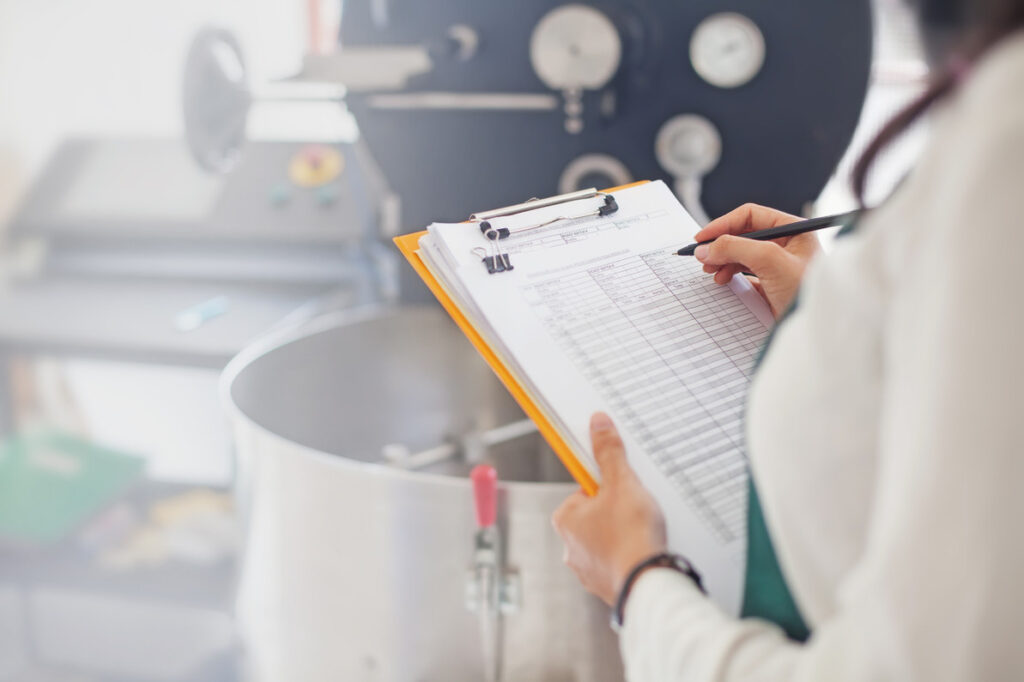Food Safety Compliance Software for Audit Readiness
In an era where food safety is paramount, businesses in the food industry face increasing pressure to comply with stringent regulations and standards. The implementation of food safety compliance software has emerged as a vital solution to ensure audit readiness. This software not only streamlines processes but also enhances accountability and transparency throughout the supply chain.
The Importance of Food Safety Compliance
Food safety compliance is not merely a regulatory requirement; it is a commitment to public health. Non-compliance can lead to severe consequences, including legal penalties, loss of reputation, and, most importantly, health risks to consumers.
Food safety compliance software is an invaluable tool for businesses aiming to maintain compliance and prepare for audits effectively. By streamlining processes, enhancing traceability, and improving data management, these solutions empower organisations to take control of their food safety practices.
Regulatory Landscape
The food industry is governed by a myriad of regulations that vary by country and region. In Australia, the Food Standards Australia New Zealand (FSANZ) plays a pivotal role in establishing food safety standards. Compliance with these standards is essential for businesses to operate legally and maintain consumer trust.
Failure to adhere to these regulations can result in significant fines and even closure of operations. Therefore, understanding the regulatory landscape is crucial for any food business aiming for audit readiness. Furthermore, food businesses must stay abreast of changes in legislation, as regulations can evolve in response to emerging health concerns or foodborne illness outbreaks. This proactive approach not only ensures compliance but also positions businesses as leaders in food safety, enhancing their credibility in a competitive market.

Consumer Expectations
Today’s consumers are more informed and concerned about food safety than ever before. They expect transparency regarding the origins of their food and the safety measures in place. A commitment to food safety compliance not only meets regulatory demands but also aligns with consumer expectations, fostering brand loyalty and trust.
Moreover, the rise of social media has amplified consumer voices, making it imperative for businesses to maintain high standards of food safety. A single incident of food contamination can quickly escalate into a public relations crisis, with negative reviews and social media backlash potentially damaging a brand’s reputation irreparably. As such, businesses must invest in comprehensive training for their staff, ensuring that everyone from the production line to the management team understands the importance of food safety practices. This collective effort not only safeguards public health but also reinforces the integrity of the food supply chain, ultimately benefiting both consumers and producers alike.
Learn about safety software solutions on: How food safety software solutions improve quality control
Benefits of Food Safety Compliance Software
Investing in food safety compliance software offers numerous advantages that can significantly impact a business’s operational efficiency and audit readiness.
Streamlined Processes
One of the primary benefits of food safety compliance software is the ability to streamline processes. Traditional methods of managing compliance often involve cumbersome paperwork and manual tracking, which can lead to errors and inefficiencies. Software solutions automate these processes, allowing for real-time monitoring and reporting.
This automation not only saves time but also reduces the likelihood of human error, ensuring that compliance records are accurate and up-to-date. As a result, businesses can focus more on their core operations rather than getting bogged down by administrative tasks. Furthermore, the integration of mobile technology allows staff to input data directly from the production floor, enhancing the immediacy and accuracy of information captured. This seamless flow of data can lead to quicker decision-making and a more agile response to any compliance issues that may arise. Find more about technology at https://www.mghihp.edu/news-and-more/opinions/health-professions-education-effects/integrating-technology-health-professions-education-trends-and-innovations
Enhanced Traceability
Traceability is a critical component of food safety. In the event of a food safety incident, businesses must be able to trace the source of contamination quickly. Food safety compliance software provides robust traceability features, allowing businesses to track ingredients from farm to fork.
This level of traceability not only aids in swift response during a crisis but also strengthens a business’s position during audits. Being able to demonstrate a clear and comprehensive traceability system can significantly enhance a company’s credibility with regulators and consumers alike. Additionally, the ability to trace products back through the supply chain can foster stronger relationships with suppliers, as transparency becomes a shared value. This not only builds trust but also encourages a collaborative approach to addressing food safety challenges across the entire supply chain.
Improved Data Management
Data is at the heart of effective food safety compliance. The ability to collect, analyse, and report data efficiently is crucial for maintaining compliance and preparing for audits. Food safety compliance software centralises data management, making it easier to access and analyse information related to food safety practices.
With advanced analytics and reporting tools, businesses can identify trends and areas for improvement, allowing for proactive measures to enhance food safety practices. This data-driven approach not only supports compliance but also drives continuous improvement within the organisation. Moreover, the software can facilitate training and development by providing insights into areas where staff may need additional support or education, thereby fostering a culture of safety and accountability. By leveraging data effectively, businesses can not only meet regulatory requirements but also elevate their overall food safety standards, ultimately leading to better consumer confidence and loyalty.
Preparing for Audits with Software Solutions
Preparation for audits can be a daunting task, but with the right food safety compliance software, businesses can approach audits with confidence.

Automated Record Keeping
One of the most time-consuming aspects of preparing for an audit is gathering and organising records. Food safety compliance software automates record-keeping, ensuring that all necessary documentation is readily available when needed. This includes everything from training records and inspection reports to supplier certifications.
By having all records in one place, businesses can streamline the audit process, reducing stress and minimising the risk of missing critical information. This level of organisation not only facilitates smoother audits but also demonstrates a commitment to compliance and quality assurance. To learn more about risk click here.
Real-Time Monitoring and Alerts
Food safety compliance software often includes real-time monitoring capabilities that can alert businesses to potential compliance issues before they escalate. For instance, temperature monitoring for storage facilities can be automated, ensuring that products are kept at safe temperatures at all times.
These proactive measures allow businesses to address issues promptly, reducing the likelihood of non-compliance during audits. Furthermore, being able to demonstrate a proactive approach to compliance can positively influence auditors’ perceptions.
Choosing the Right Food Safety Compliance Software
With numerous food safety compliance software options available, selecting the right one can be challenging. Several factors should be considered to ensure that the chosen solution meets the specific needs of the business.
Scalability and Flexibility
As businesses grow, their compliance needs may change. It is essential to choose software that is scalable and flexible enough to adapt to evolving requirements. A solution that can grow with the business will provide long-term value and support ongoing compliance efforts.
Additionally, the software should be user-friendly, allowing staff at all levels to utilise it effectively. A complicated system can lead to frustration and decreased compliance, undermining the very purpose of the investment.
Integration Capabilities
Food safety compliance software should seamlessly integrate with existing systems within the organisation. Whether it’s inventory management, quality control, or supply chain management, integration ensures that data flows smoothly between systems, enhancing overall efficiency.
Furthermore, integration can provide a holistic view of compliance across the organisation, enabling better decision-making and resource allocation.
Support and Training
Implementing new software can be a significant change for any organisation. Therefore, it is crucial to consider the level of support and training provided by the software vendor. Comprehensive training ensures that staff are equipped to use the software effectively, maximising its benefits.
Additionally, ongoing support can help businesses navigate any challenges that arise post-implementation, ensuring that they remain compliant and audit-ready at all times.
Conclusion
As the food industry continues to evolve, embracing technology will be crucial for staying ahead of regulatory demands and consumer expectations. Investing in food safety compliance software is not just about meeting requirements; it is a commitment to quality, safety, and transparency that can significantly enhance a business’s reputation and success in the marketplace.
In a landscape where food safety is non-negotiable, being audit-ready is essential. With the right tools and strategies in place, businesses can navigate the complexities of food safety compliance with confidence and ease.

